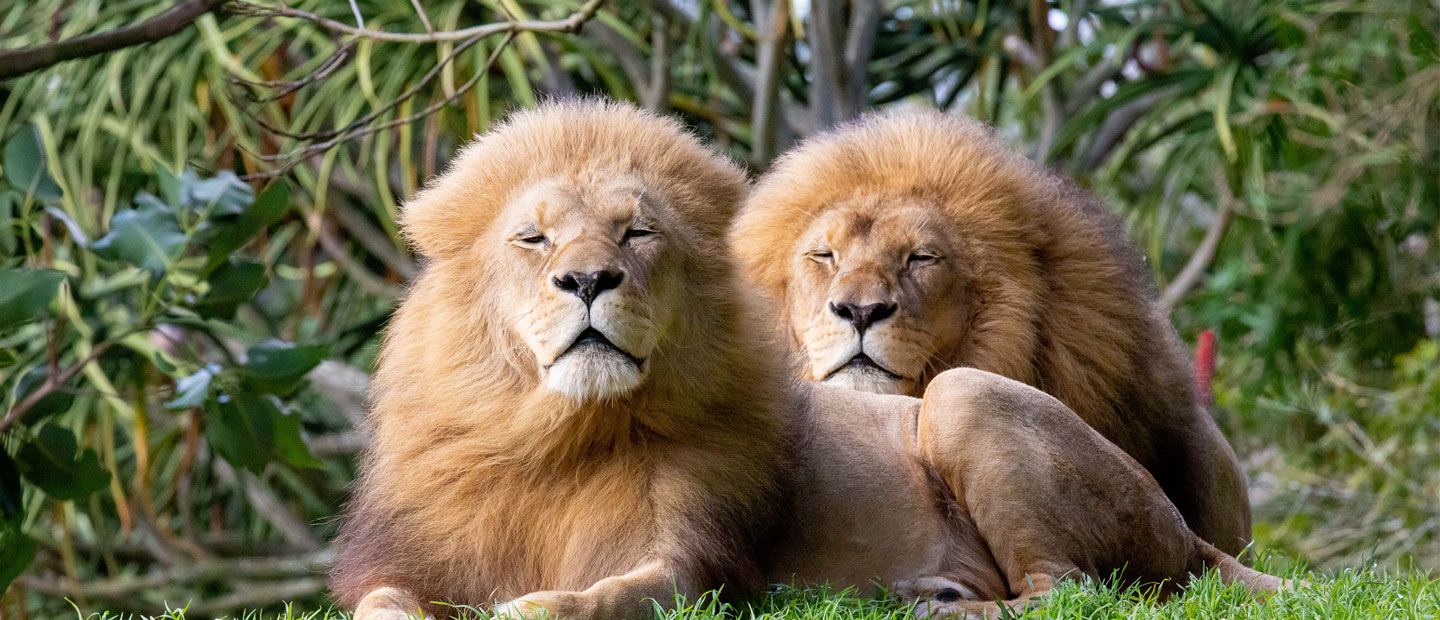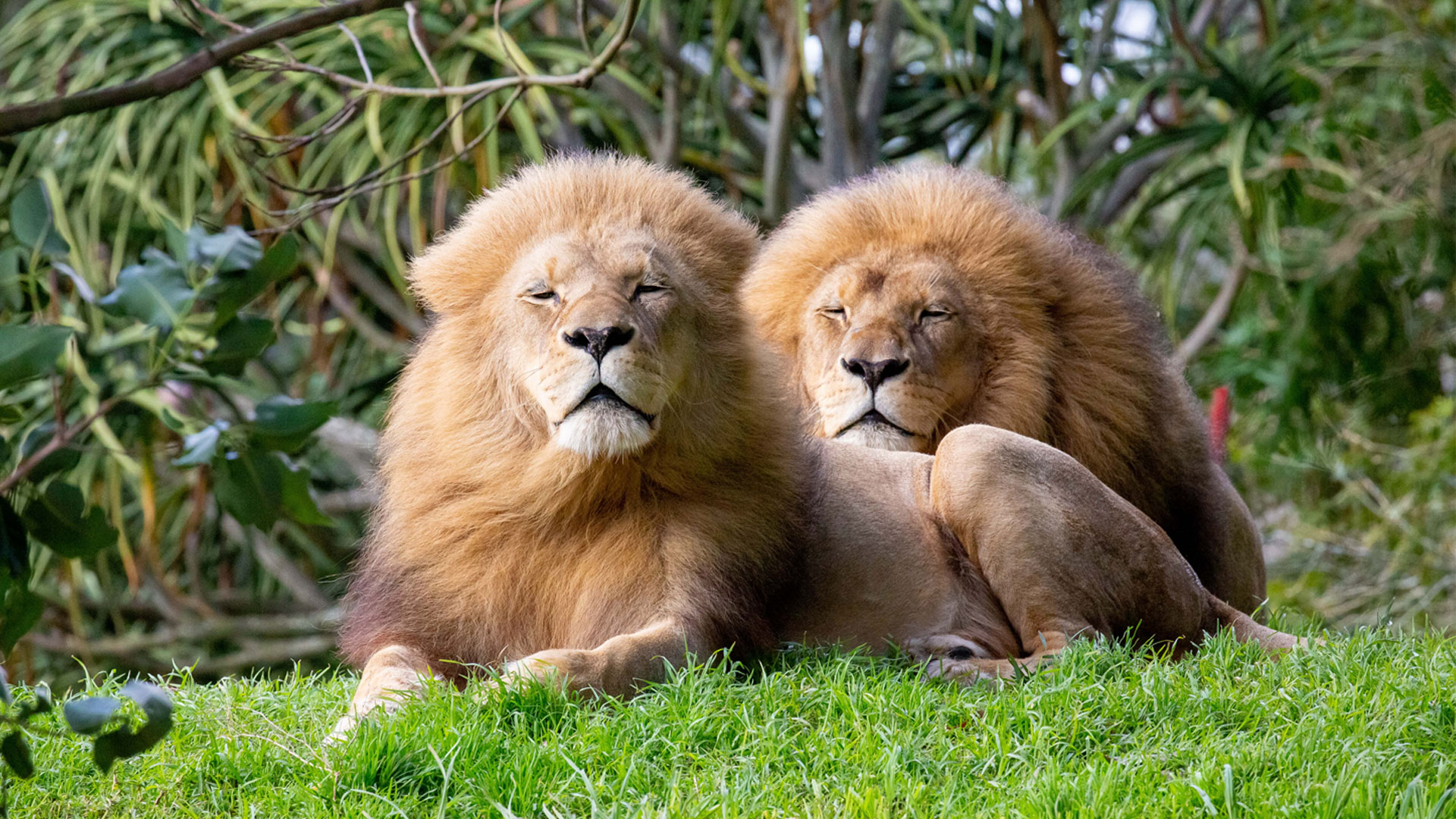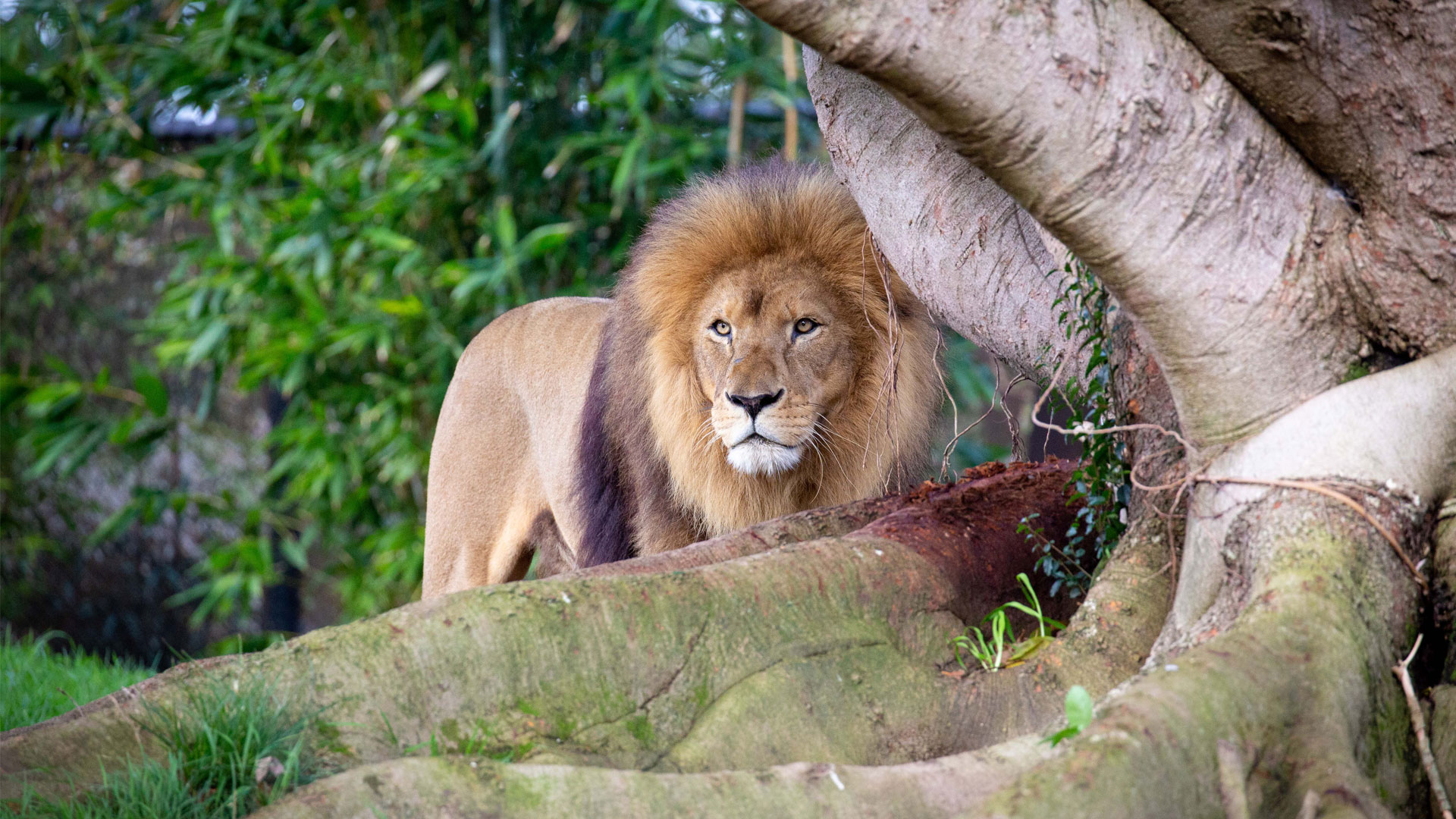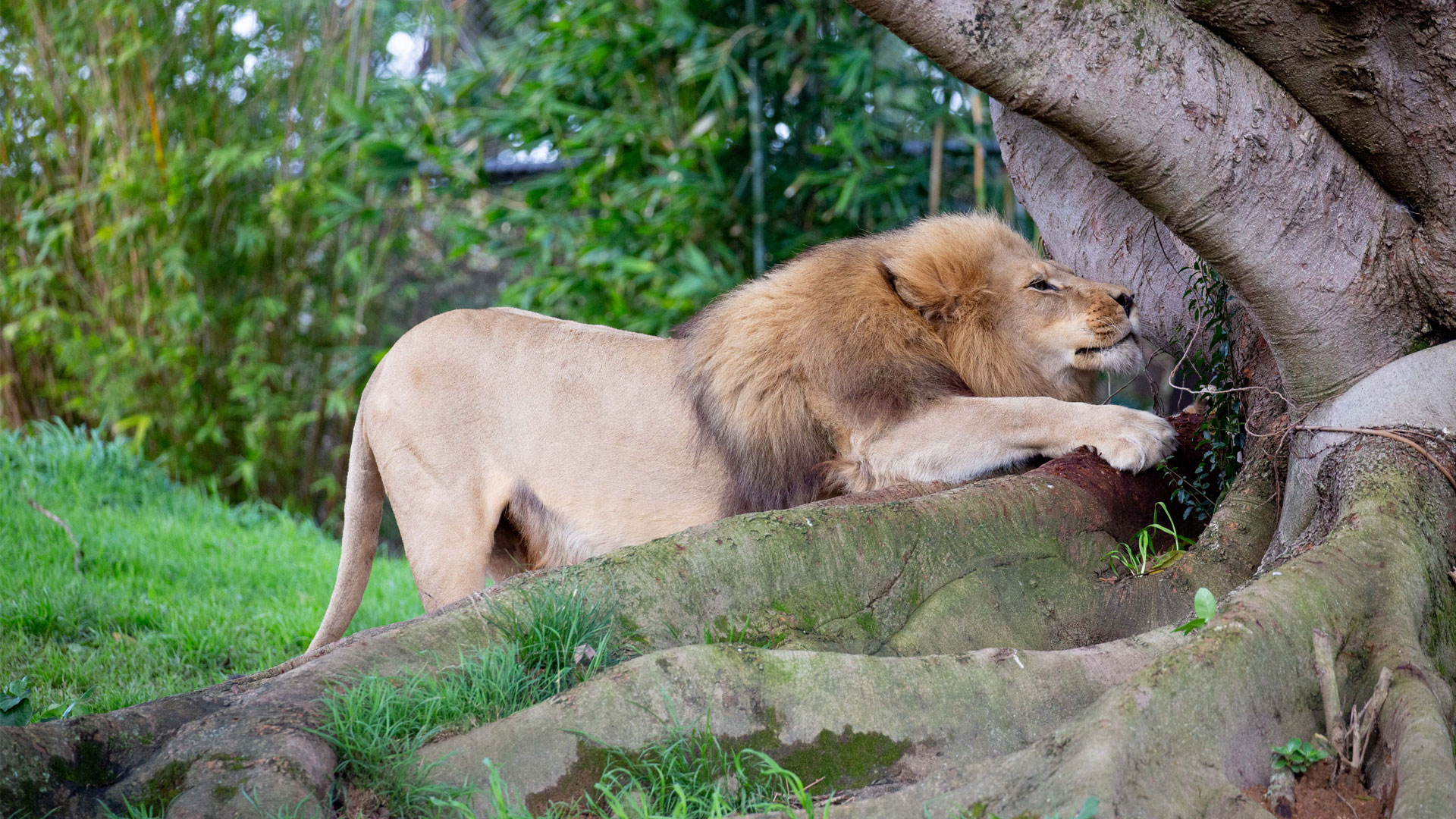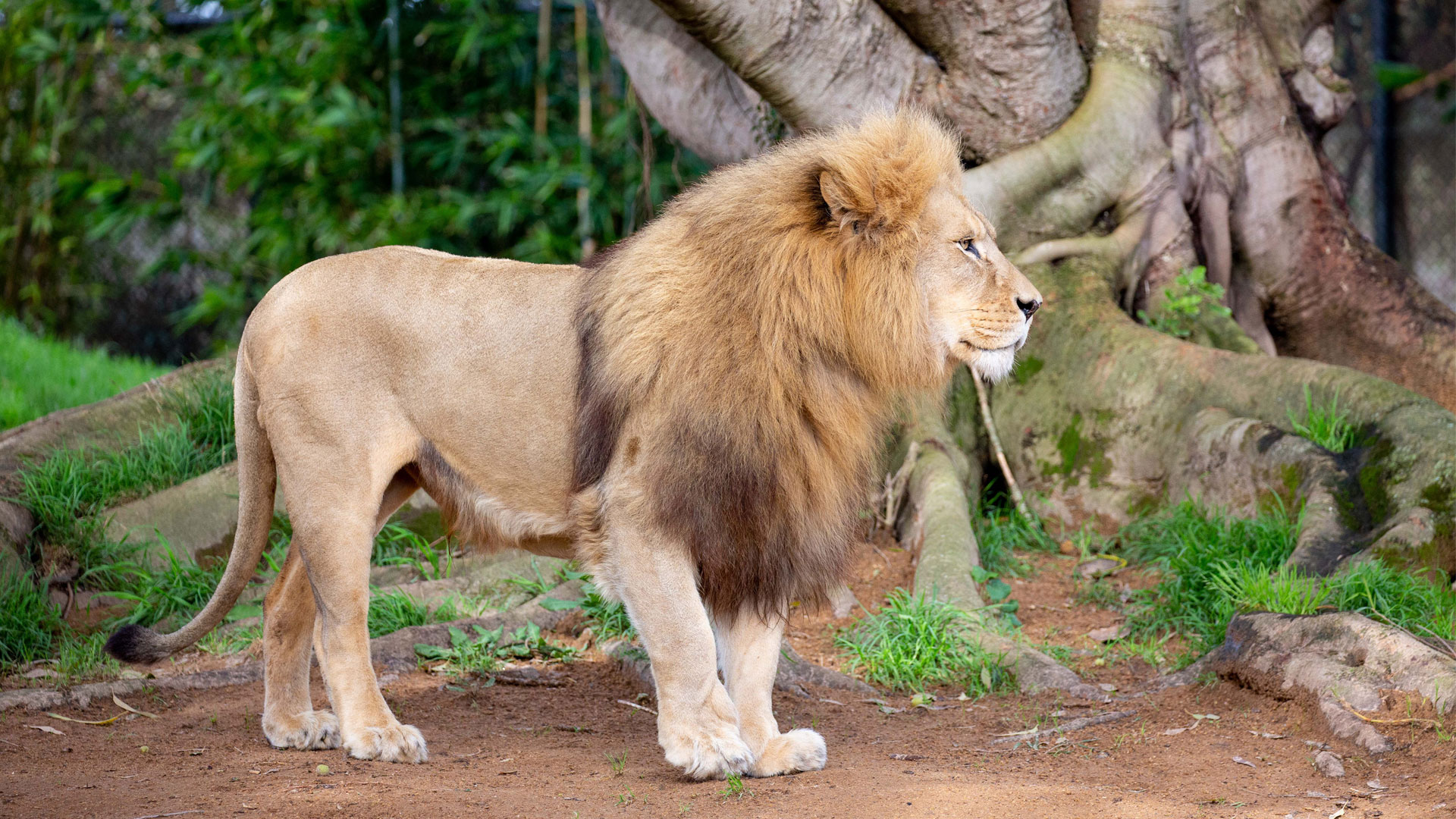Summer, autumn, winter or spring – male lions sleep between 16-20 hours a day, and elderly lion brothers Zulu and Malik are no exception!
If visiting in the day, you’ll likely spot them catnapping, while at our Saturday Zoo Lates when it’s cooler, chances are they’ll be out taking in the summer evening action of animals and people across our Africa Safari Track. These big cats are masters at conserving energy, which is why they mostly hunt between dusk and dawn (though it’s females that do the lion’s share). Impressively, as they obtain moisture from the prey they kill, they can also go without water for many days.


